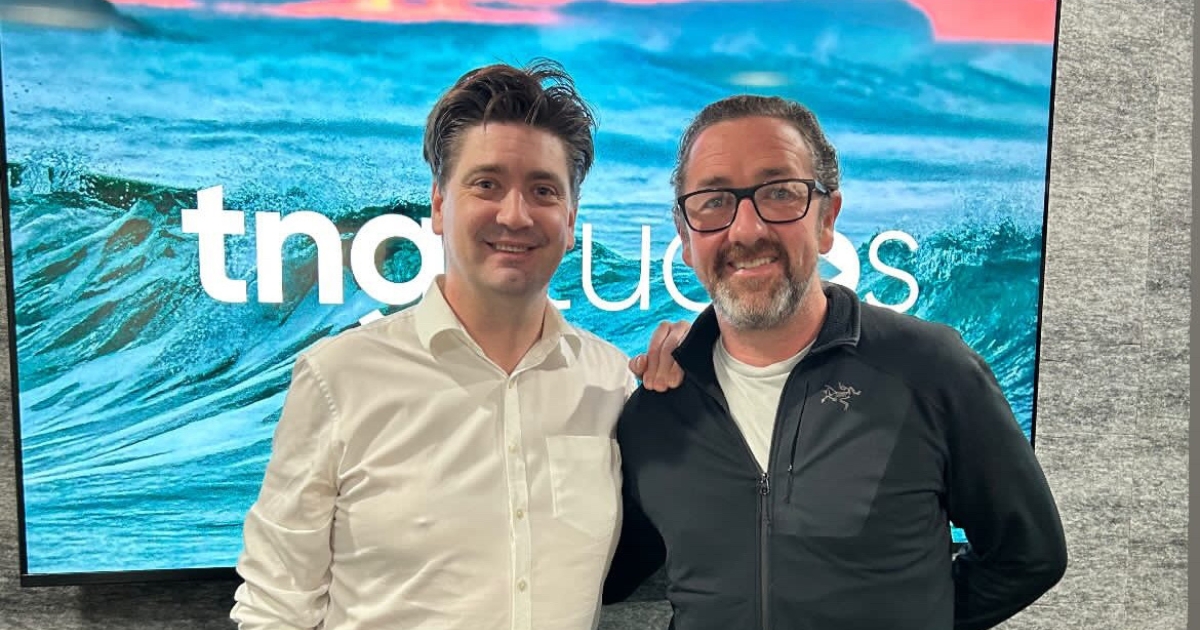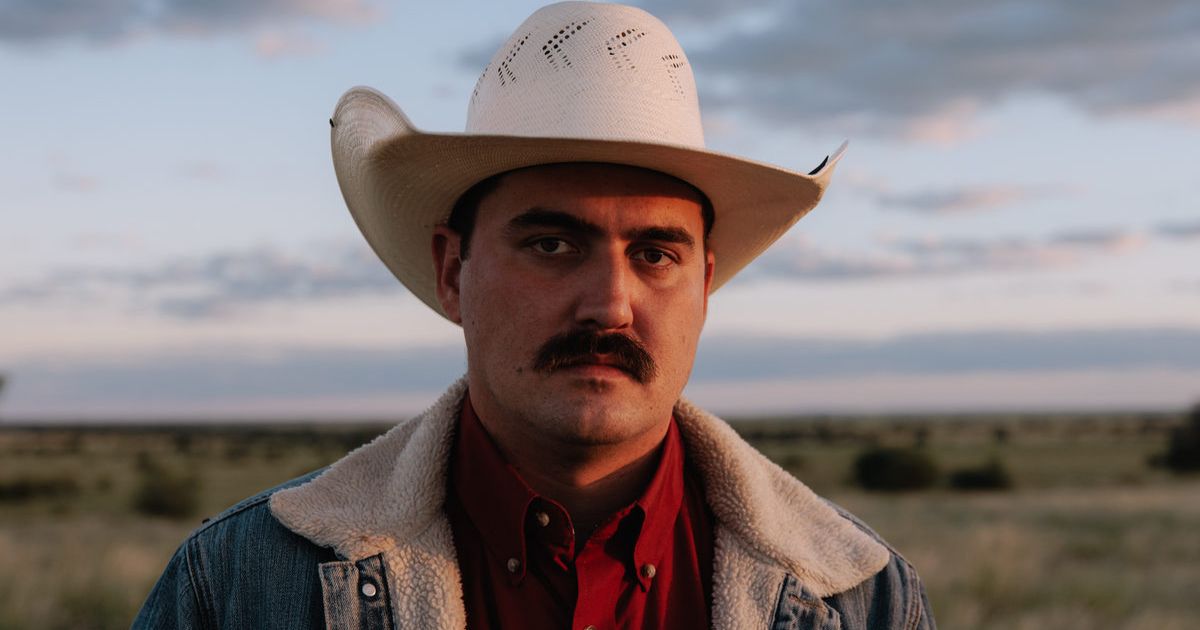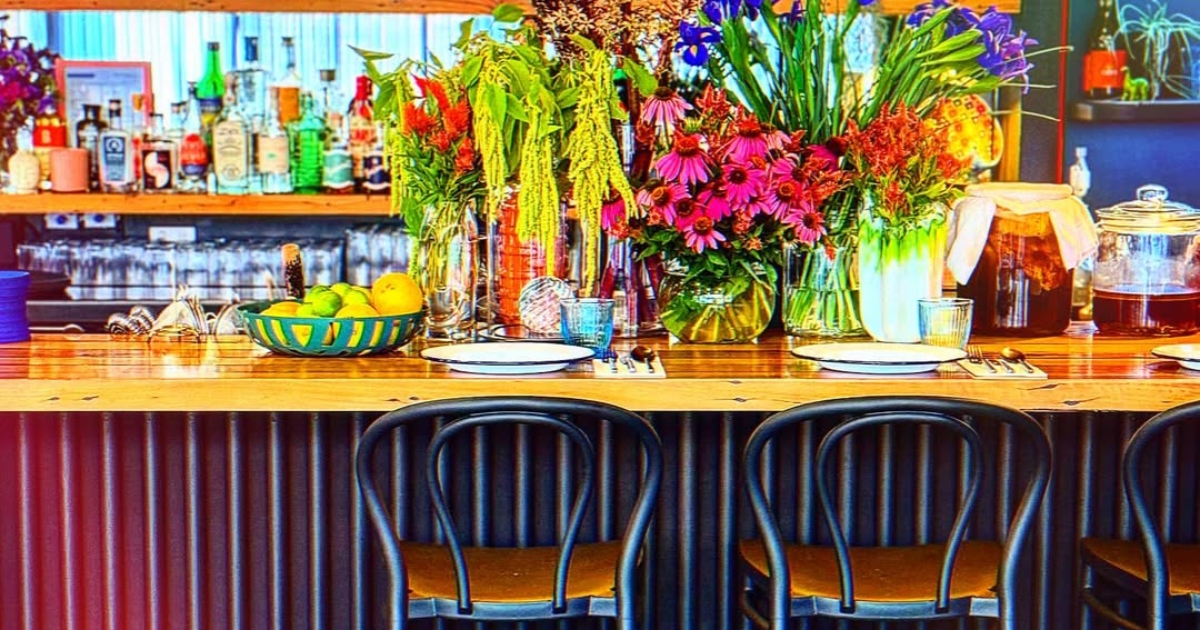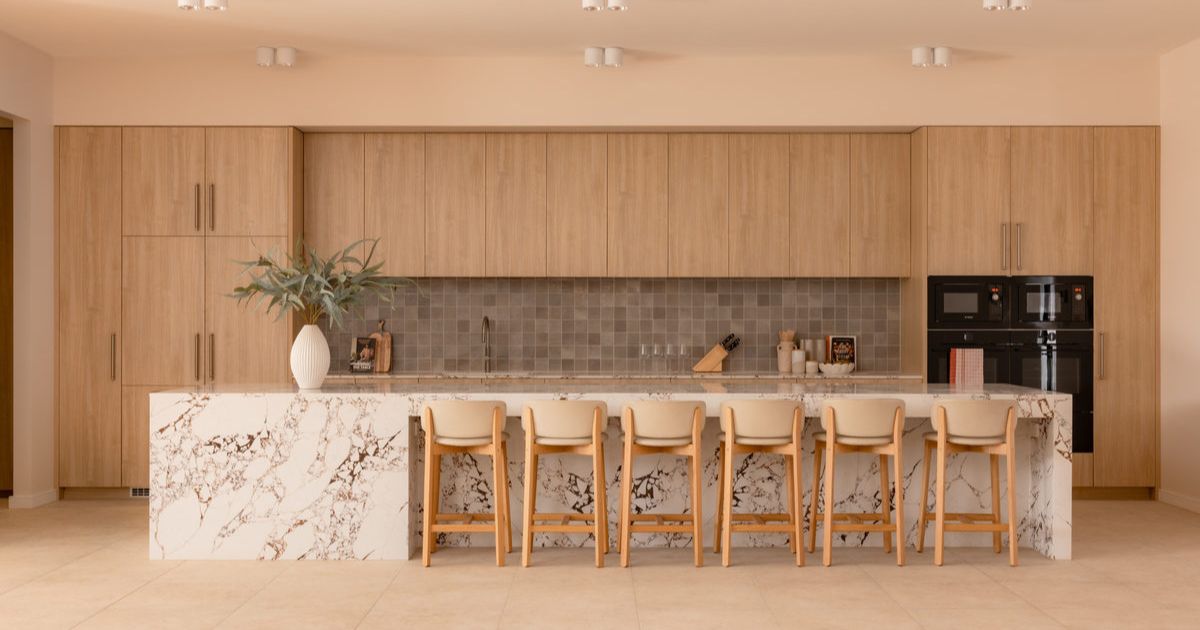Torquay’s Samesyn 2.0 turns food waste into fine dining
For episode one, recorded at TNG Studios in Torquay, I sat down with one of the most grounded and generous chefs I know: Graham Jefferies, owner and chef at Samesyn 2.0.
If you’ve dined there recently, you’ll know it’s not just the food that’s bold. The entire restaurant is purpose-built for change. The second iteration of Samesyn is now a profit-for-purpose venue that uses rescued and repurposed produce to craft elevated, thoughtful meals. All profits are donated to Feed Me, a local food rescue charity helping thousands across the Surf Coast.
“I think I was at a point where what I was doing wasn’t bringing fulfilment,” Graham told me.
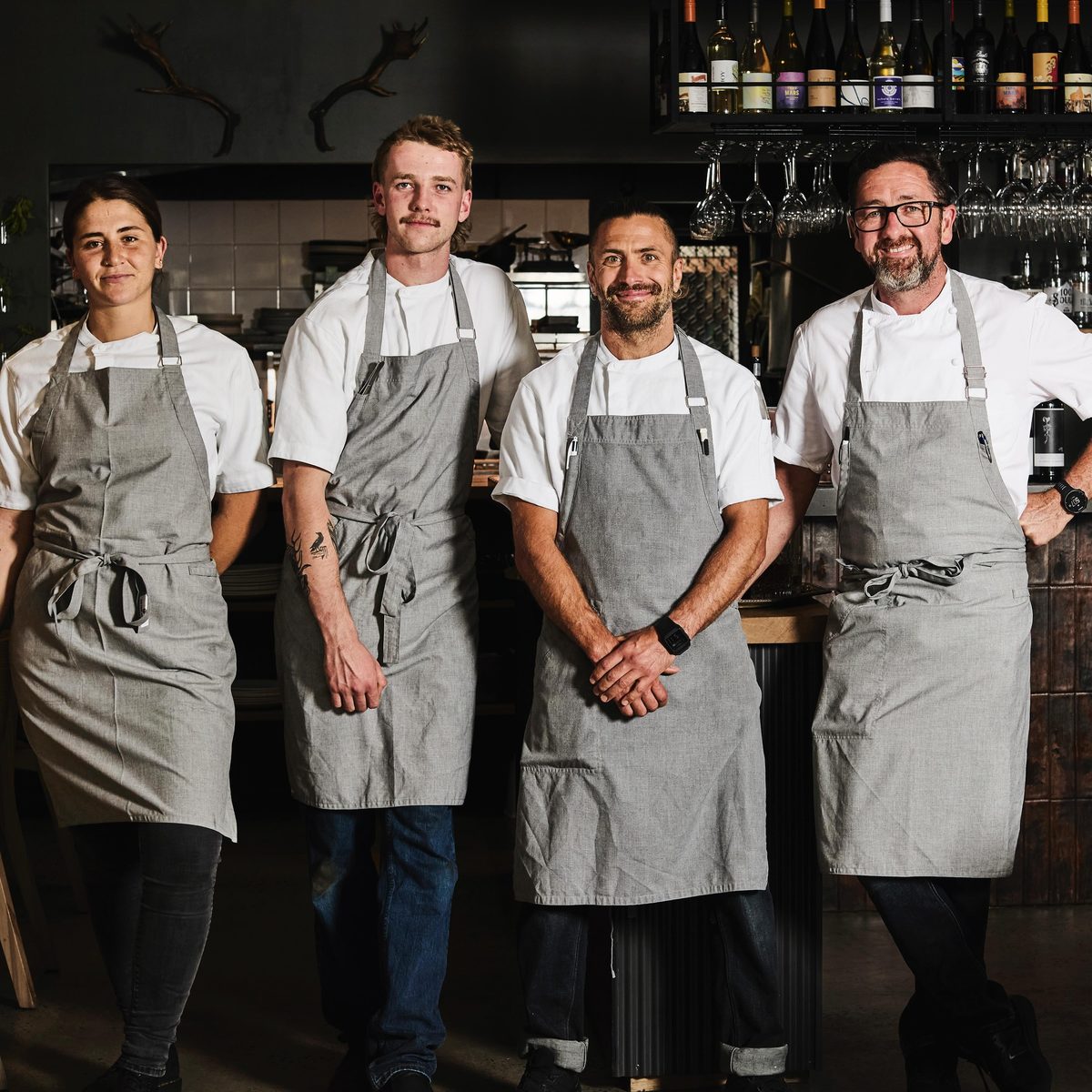
After navigating pandemic closures, quiet winters and a tough reopening, Graham connected with Feed Me and learned more about food insecurity in our region. At the same time, he saw how much perfectly edible food was being thrown out.
“You always think food insecurity is a problem somewhere else,” he said. “But it’s right here in our own backyard.”
It wasn’t just a surface-level shift. Graham began to see the hospitality industry through a new lens. He knew there was a way to keep doing what he loved while serving something larger than himself or the business.
What followed was a complete reimagining of how a restaurant could run. Samesyn reopened with no rubbish bin, a new model, and a clear purpose. Inspired by Silo in London, Graham and his team began designing a kitchen where waste was reused, not ignored, and sustainability wasn’t just a menu talking point.
“We’re not trying to be fancy,” Graham said. “We’re just trying to make good food with meaning behind it.”
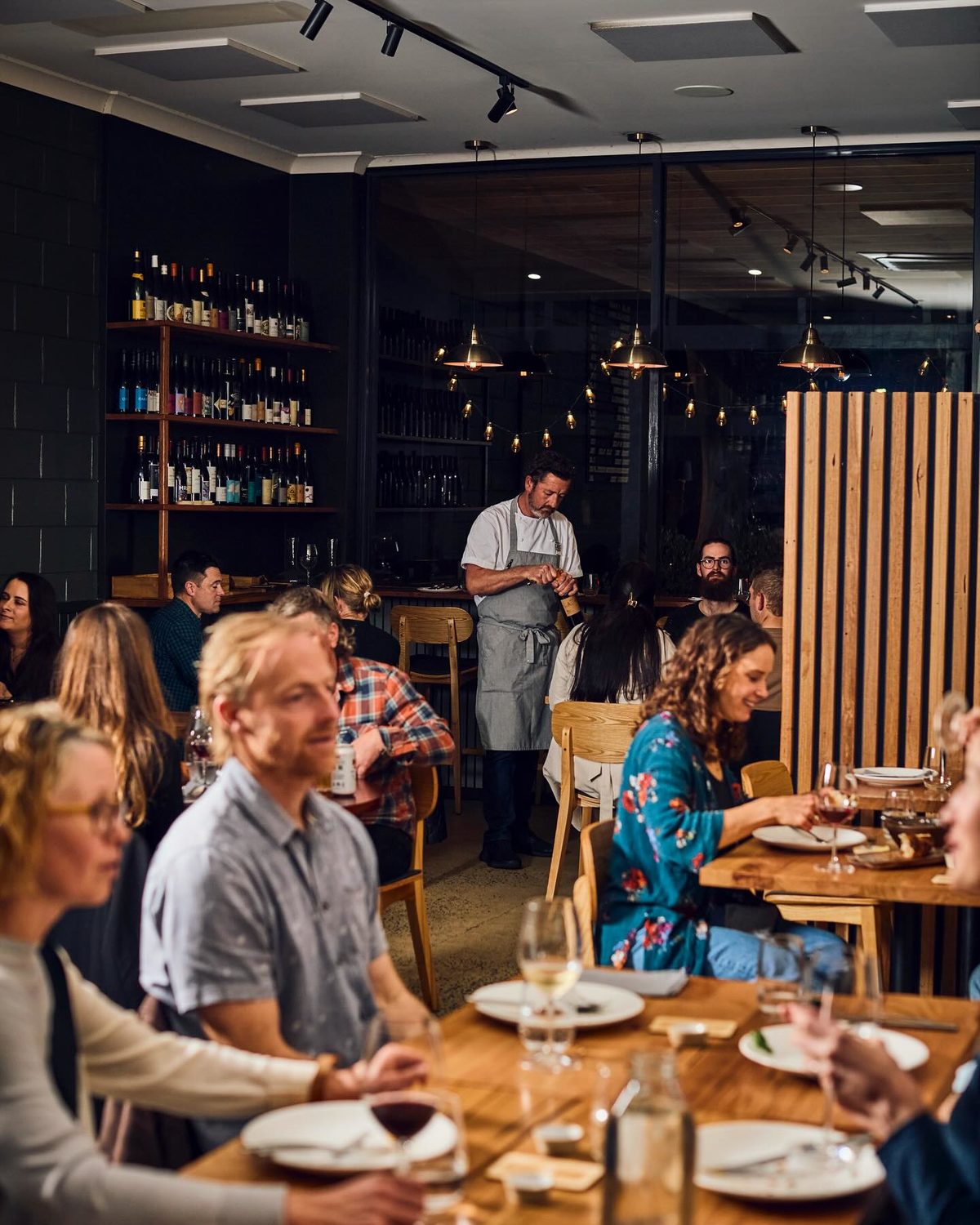
Today, every dish includes at least one rescued or repurposed element. Egg whites become garum. Bull kelp is foraged from local beaches. Jerusalem artichokes are slow-cooked and fried in beef fat, then plated with chicken skin and watercress custard. Retired dairy cows, usually destined for pet food or fertiliser, are dry-aged and served with care.
The dishes are complex, but the goal is simple. Showcase what’s possible when food is treated with respect and intention.
There’s also a quiet strength behind the scenes.
Samesyn doesn’t operate like a traditional restaurant. It doesn’t have dedicated front-of-house staff. Instead, the chefs prep, cook, seat guests, serve dishes and explain the story behind each plate. The same person who braised the beef might be the one pouring your water and describing the foraged garnish.
“Everyone here wears multiple hats,” Graham said. “That means everyone has a hand in the story we’re telling at the table.”
Decisions are often made collaboratively. Kitchen culture is shaped around purpose, not pressure. While the team still works hard, Graham said the energy feels different from other kitchens he’s run.
“There’s this real sense of shared purpose,” he said. “It’s actually made running a restaurant easier.”
The public response has matched the internal transformation. Samesyn 2.0 picked up two Good Food Guide hats and was named state winner at the Good Food Awards. National food media have taken notice, and the bookings continue to flow.
More importantly, the impact is being felt beyond the dining room. Since relaunching, Samesyn has donated more than $27,000 to Feed Me, and that figure continues to grow.
“We’re still refining things,” Graham said. “But the fact we’ve been able to contribute that much already is huge.”
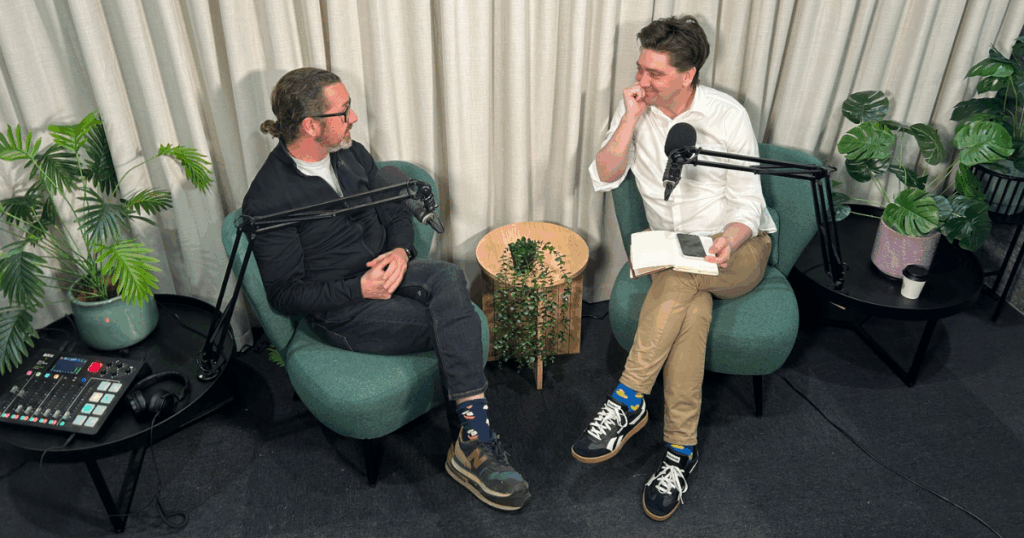
Feed Me, for those unfamiliar, is a local organisation that intercepts food destined for landfill and redistributes it to families in need. They run community markets in Ocean Grove and Torquay, and produce thousands of ready-to-eat meals each week. Much of the work is powered by volunteers.
Graham’s connection to Feed Me was the catalyst for Samesyn’s transformation. And it remains at the heart of everything the restaurant does.
Located at 24 Bell Street in Torquay, Samesyn trades Tuesday to Saturday, with Saturday lunch and extended sittings during summer. It seats just 28 guests, and the team prefers it that way. The intimacy allows for storytelling, connection and the kind of hospitality that can’t be scaled.
“We’re happy where we are,” Graham said. “There’s no surf in Melbourne, so we’re staying right here.”
If you haven’t visited, now is the time. And if you want to hear Graham’s full story in his own words, episode one of The Local Palate is available now on your favourite podcast platform.
Because sometimes, the best food stories start with less and grow into something much more.
